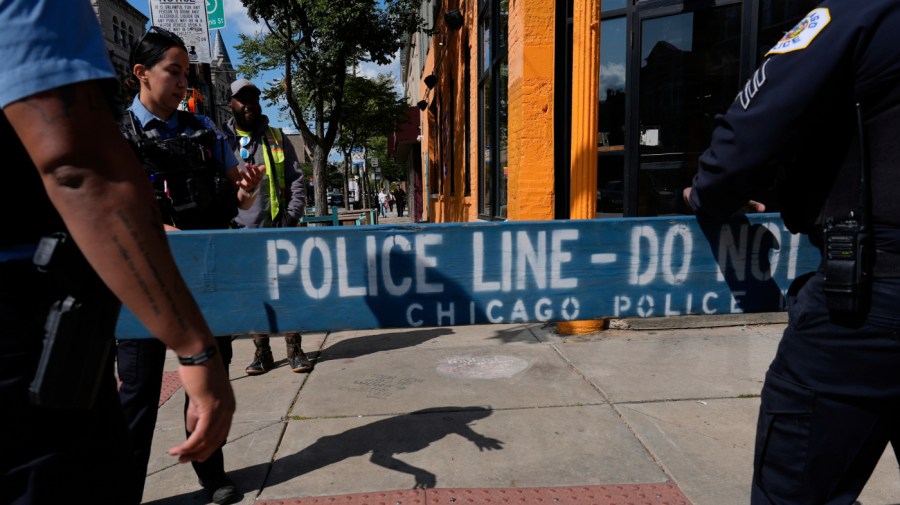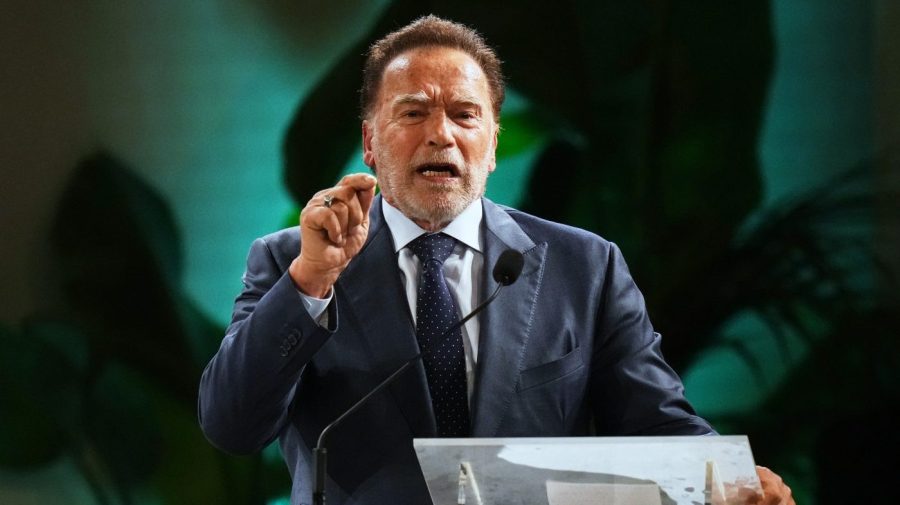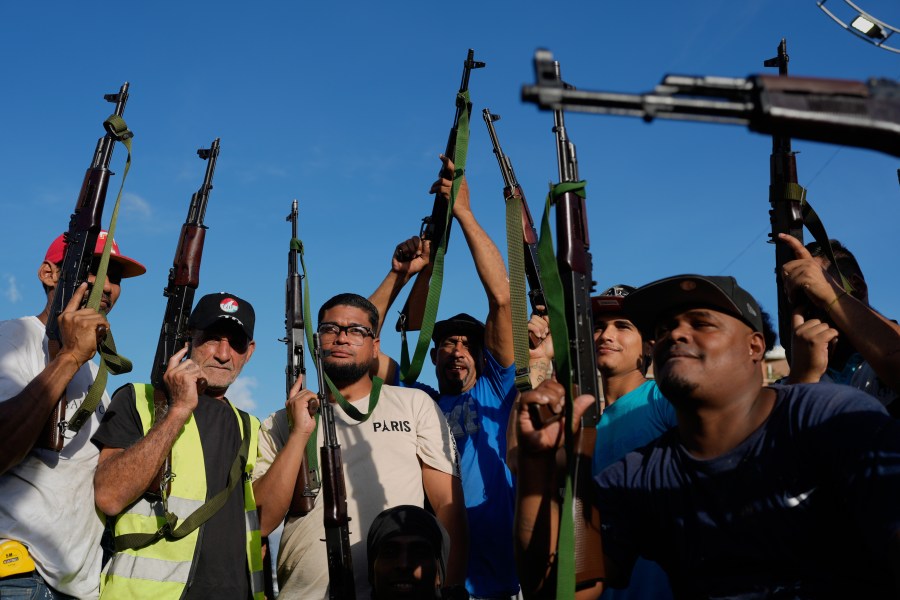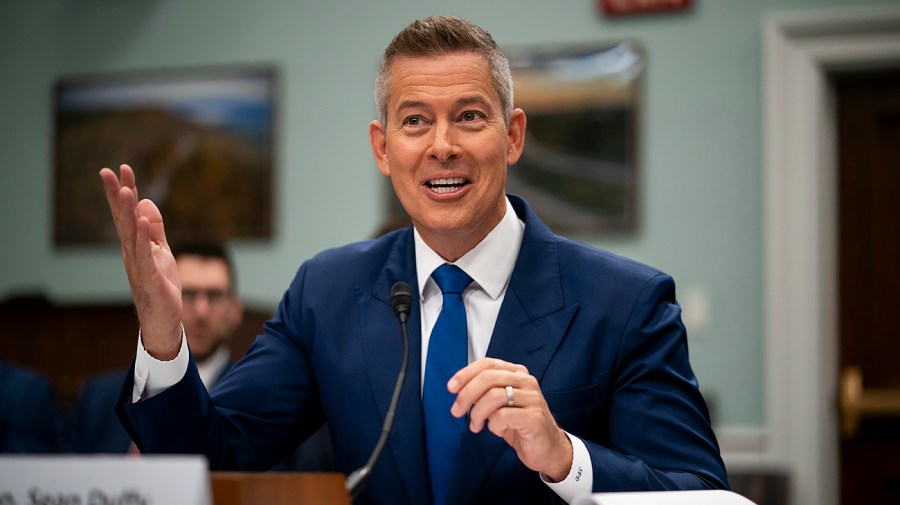Shocking revelations from earlier this month out of Chicago should jolt every American out of complacency when it comes to public safety. A commander in the Chicago Police Department ordered officers not to respond to calls for help from federal law-enforcement agents who were under duress, surrounded by vehicles and under threat.
This should not be dismissed as just a Chicago problem. It is a real, present warning sign for all of us of how deeply fractured our policing institutions have become.
What happened in Chicago is not an isolated incident. Rather, it represents the next inflection point in a precipitous decline in law enforcement that has been gathering steam since the defund-the-police movement.
Across the country, police departments are struggling with ballooning response times, with jurisdictions reporting that they have doubled the time it takes to react to 911 calls. What we are seeing is a rapidly developing erosion of the “thin blue line.”
This breakdown should give pause to every law enforcement officer, who now must wonder if their “brothers in blue” will be there. In the dispatch logs, federal agents reported they were boxed in by 10 vehicles, under attack and requested urgent backup. In response, the Chicago Police Chief of Patrol can be heard on dispatch recordings ordered: “No units will respond.”
Let that sink in: A law enforcement officer, in mortal danger, was denied assistance, not because there was no aid available, but because of a command decision not to send help.
Police unions and veteran law enforcement voices were swift to condemn the order. The Fraternal Order of Police called it “shocking and appalling,” reminding everyone that the unwritten rule — respond to officers in distress, no matter what — must not be abandoned for political considerations. That this could happen in a major American city in 2025 paints a deeply disturbing picture of our moral and institutional decline.
Since 2020, the nationwide uprisings and amplified calls for radical police reform, including defunding or abolishing police forces, have sent shockwaves through every department. In many cities, budgets were slashed, morale plummeted, and officers felt increasingly under siege.
We are now both seeing and feeling the consequences. Police agencies are hemorrhaging talent. The International Association of Chiefs of Police survey of over 1,100 departments in 2024 found that more than 70 percent of agencies say recruitment has become harder than five years ago; many report operating at only 90 percent of authorized force strength.
Surveys conducted by Police1 reveal that more than half of responding officers expect to leave their current department within five years. Many pointed to low morale, negative media narratives and perceived lack of support from political leaders as motivating factors.
In total, the U.S. has lost tens of thousands of police personnel in recent years. One analysis tallied a drop of more than 25,000 local officers since the total number peaked in 2019. Even though hiring has rebounded somewhat, the gains have not kept pace with the losses, especially in bigger city departments that face more turnover.
This crisis is not limited to Chicago. In New York City, tensions are escalating over the impending mayoral election. Mayoral candidate Zohran Mamdani, who has in the past called for the defunding of the NYPD, has triggered threats from officers who say they may quit en masse if he is elected.
Police union voices warn of a mass exodus that could destabilize public safety. If New York’s police do stage a walk-off, or if resignations surge, the domino effect will ripple through urban America, magnifying tensions in every metro area from Boston to Los Angeles.
We have arrived at a watershed moment in American society. When departmental politics interfere with the bedrock principle of providing help where help is needed, we cross a red line: the fundamental responsibility to protect. Some may dismiss Chicago’s stand-down as a local flare-up, or dismiss officer resignations as simple attrition. But this is systemic. It is a crisis of institutional legitimacy, of shifting public and professional norms, and of political calculus overriding duty.
We cannot wait for Washington or city hall to fix this problem. Recent deployments of the National Guard are a stop-gap measure at best. Instead, citizens must re-conceive their own role in their own safety. For too long this has been outsourced to the government. Now, Americans must become first responders of a different sort: stakeholders of our own security.
The collapse of law enforcement capacity is not inevitable, but neither is its recovery. It will require a reknitting of trust between police and citizens, layered resilience, and a shared awareness that safety is a public good, not a spectator sport.
The Chicago stand-down order should jar us into realism about where we now stand. The thin blue line is fraying. The question for every American today is: Will you wait for collapse, or begin rebuilding and claim your stake in your own security?
Rob Chadwick is the principal training advisor for the United States Concealed Carry Association













